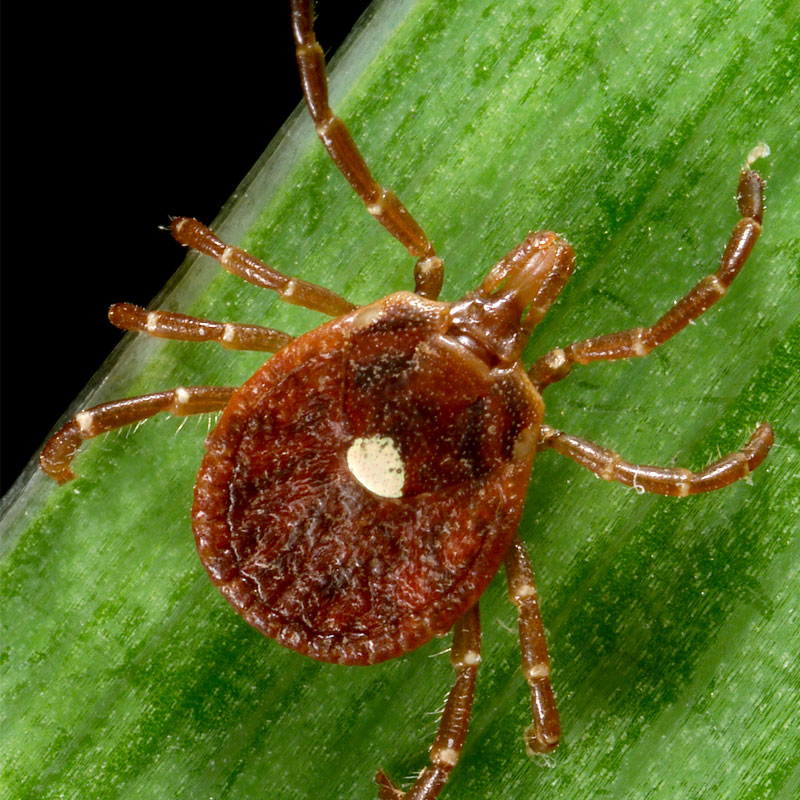Alpha-gal syndrome (AGS) is a serious, potentially life-threatening allergic condition that can occur after a tick bite. It's named for a sugar molecule, galactose-α-1,3-galactose (alpha-gal), that's found in most mammals.
AGS is not caused by an infection. AGS symptoms occur after people eat red meat or are exposed to other products containing alpha-gal. AGS is a serious, potentially life-threating allergic condition that can cause allergic symptoms like hives, itching, and even anaphylaxis (a reaction that leads to sudden weakness, swelling of the throat, lips and tongue, difficulty breathing and/or unconsciousness).
Centers for Disease Control and Prevention (CDC) has created a webpage on products that may contain Alpha-gal.
It is important to note that this website does not contain a complete listing.
Causes
AGS is associated with tick bites. Evidence suggests that AGS is primarily associated with the bite of a lone star tick in the United States, but other kinds of ticks have not been ruled out. Other tick species have been connected with the development of AGS in other countries.

Female Lone Star tick (Amblyomma americanum). Photo: Centers for Disease Control and Prevention.
In Indiana, the Lonestar tick is most common in the southern two-thirds and northwest corner of the state. This tick is also a known vector for ehrlichiosis. Visit our tick-borne surveillance dashboard and select ehrlichiosis from the disease drop-down menu to see the geographic distribution of the Lonestar tick.
Risk Factors
Anyone can get AGS. Most reported cases of AGS in the United States are among people living in the South, East, and Central United States.
While people in all age groups can develop AGS, most cases have been reported in adults. More research is needed to understand the role ticks play in starting this condition, and why certain people develop AGS.
A CDC report showed that between 2010 and 2022, more than 110,000 suspected cases of AGS were identified. However, this number might be underestimated due to it not being a nationally notifiable disease. Alpha-gal syndrome is not a state-reportable condition in Indiana.
Diagnosis
A diagnosis of alpha-gal syndrome is multi-faceted. A healthcare provider may diagnose AGS by:
- Performing a physical examination
- Collecting a detailed patient history
- Ordering testing for antibodies to alpha-gal
Living with AGS
AGS should be managed under the care of an allergist or other healthcare provider.
Most healthcare providers recommend patients diagnosed with AGS stop eating meat from mammals. Not all patients with AGS have reactions to every ingredient containing alpha-gal. Patients should work with their healthcare provider to understand which products containing alpha-gal they will need to avoid.
Talk to your healthcare provider before taking a new medication or receiving a vaccine. Although very rare, some people with severe AGS may react to ingredients in certain vaccines or medications.
Prevention
Preventing tick bites is important and may reduce your chances of developing AGS or other tick-borne illnesses.
Visit our tick-bite prevention page for helpful tips on how you can stay safe from ticks.
Page last reviewed/updated: January 2025
